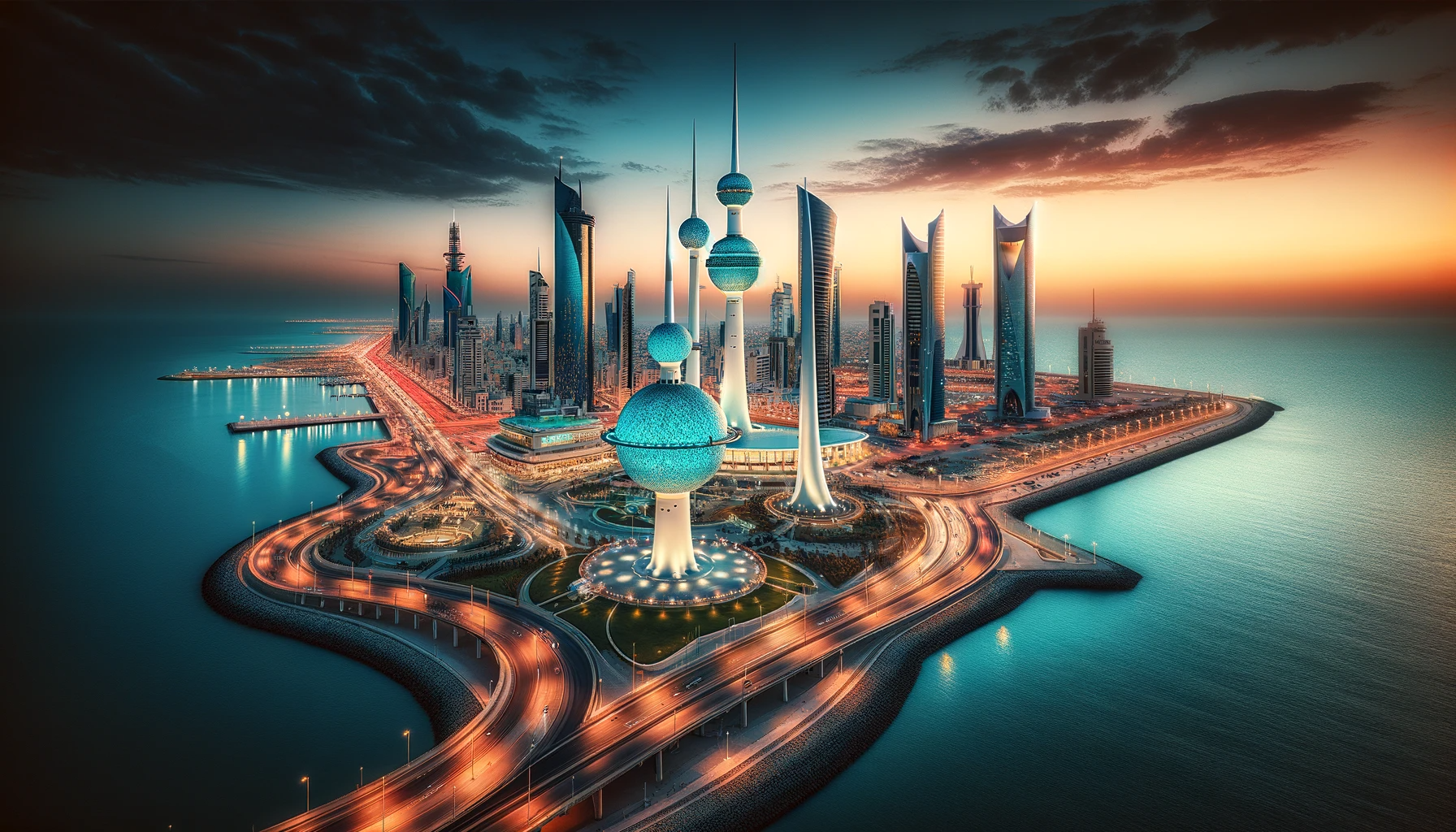Kuwait, a small but wealthy country in the Arabian Peninsula, is known for its modern capital, Kuwait City, which is marked by high-rise buildings and luxury malls. The country’s significant oil reserves have shaped its development and prosperity. Kuwait offers a blend of contemporary urban life with traditional Islamic and Arab culture, evident in its architecture, cuisine, and lifestyle. The country also features a beautiful coastline along the Persian Gulf, making it a unique blend of desert landscapes and urban sophistication.
List of National and Public Holidays in Kuwait for the year 2024
- New Year’s Day: Monday, 1 January 2024
- The Prophet’s Ascension: Thursday, 8 February 2024
- National Day: Sunday, 25 February 2024
- Liberation Day Kuwait: Monday, 26 February 2024
- Eid al-Fitr: Wednesday, 10 April 2024
- 2. Eid al-Fitr Holiday: Thursday, 11 April 2024
- 3. Eid al-Fitr Holiday: Friday, 12 April 2024
- Eid al-Adha: Sunday, 16 June 2024
- 2. Eid al-Adha Holiday: Monday, 17 June 2024
- Islamic New Year: Sunday, 7 July 2024
- Prophet Muhammad’s Birthday: Sunday, 15 September 2024

Kuwait: A Blend of Rich Heritage, Economic Prosperity, and Modernity
Introduction
Kuwait, a small yet prosperous country in the Arabian Peninsula, is known for its oil wealth, modern skyline, and rich cultural heritage. It balances traditional values with rapid modernization and plays a significant role in the regional economy and politics.
Historical Overview
Kuwait’s history reflects its strategic maritime position and trade history. Originally a small fishing and pearl diving community, it became an important trade hub in the Gulf. The discovery of oil in the 20th century transformed Kuwait into a wealthy nation.
Geographical Features
Situated at the tip of the Persian Gulf, Kuwait features a desert landscape with a few oases and a coastline marked by beaches and modern developments. Its climate is characterized by hot summers and mild winters.
Cultural Richness
Kuwaiti culture is deeply rooted in Arabian traditions. Influences of Islamic and Bedouin culture are evident in its music, dance, and literature. The country is also known for its distinct cuisine that blends Gulf and Middle Eastern flavors.
Economic Dynamics
Kuwait’s economy is predominantly driven by petroleum, accounting for the majority of its revenue. The government is focused on diversifying the economy through initiatives in finance, healthcare, and education sectors.
Political Structure
Kuwait is a constitutional monarchy with a parliamentary system. It stands out in the Gulf region for its active political life, with an elected parliament and a significant degree of press freedom.
Society and Demographics
Kuwaiti society is a mix of traditional and modern elements. While it is a cosmopolitan country hosting expatriates from around the world, Kuwaitis maintain strong ties to their heritage and family values.
Environmental Conservation
Kuwait faces environmental challenges related to desertification and water scarcity. Efforts are being made to promote sustainable practices and improve environmental policies.
Tourism and Attractions
Tourism in Kuwait is growing, featuring attractions like the Kuwait Towers, The Avenues mall, and the Grand Mosque. The country is also developing cultural centers and museums to showcase its history and art.
Arts and Literature
Kuwait has a rich tradition in arts and literature, with a growing contemporary art scene. It is known for its poetry, theater, and music, reflecting the country’s artistic diversity.
Global Role and Diplomacy
Kuwait plays an influential role in regional politics and global oil markets. It is an active member of the Gulf Cooperation Council and the United Nations, contributing to discussions on regional security and economic development.
Challenges and Future Directions
Kuwait faces challenges such as economic diversification, social reform, and youth empowerment. The country is investing in education, healthcare, and technology to pave the way for future growth.
Conclusion
Kuwait stands as a nation where tradition and modernity coexist harmoniously. It continues to evolve, building a future that respects its rich past while embracing new possibilities in a changing world.

